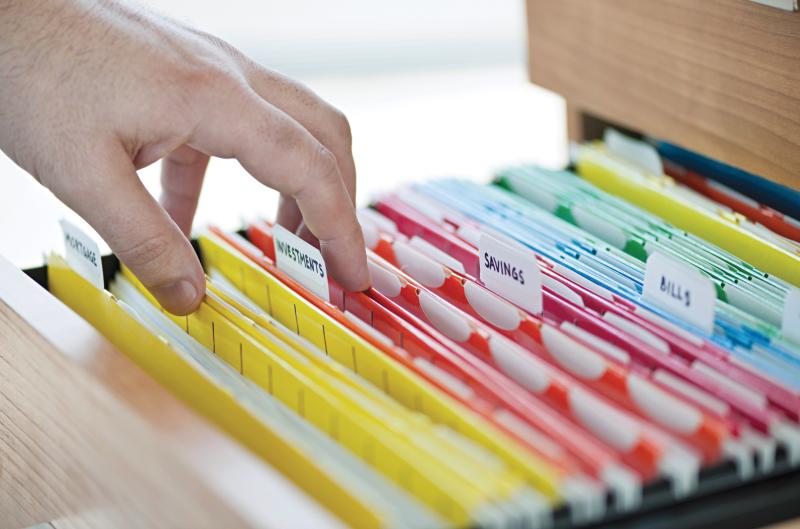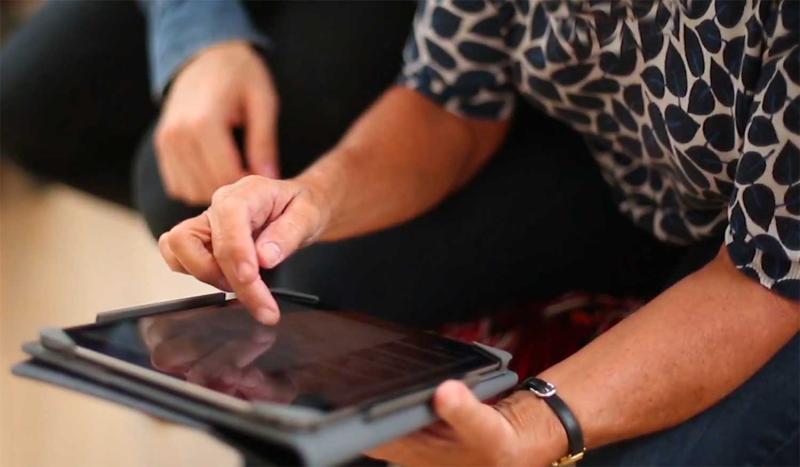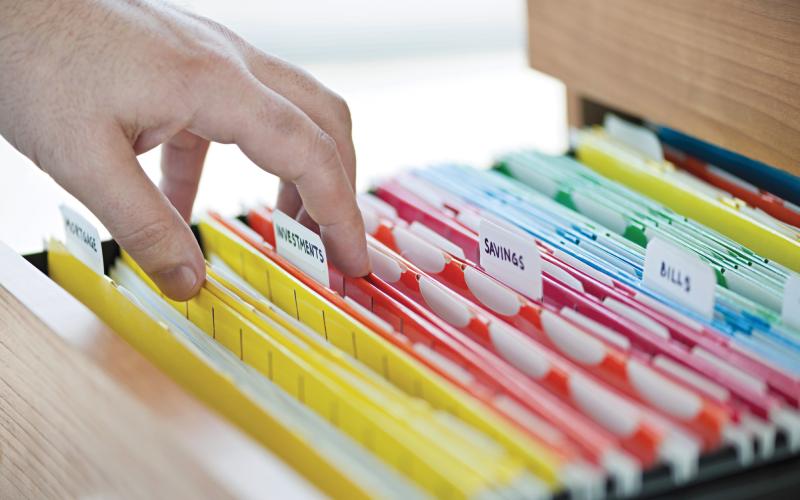When you are organizing your legal and financial information, the most important thing to remember is that someone else will need to understand details about your financial and legal situation, as well as have the information they need to act on your behalf (for example, pay property taxes, utilities, internet, etcetera). This page describes the different categories of documents and information your power of attorney (POA) or personal representative might need. It is up to you to figure out the organization strategy that works best for you.
Warning: Do not save sensitive information in any electronic file you create to organize your documents and information (for example, Microsoft Office, Google Drive, and others). Sensitive information includes account numbers, routing numbers, social security numbers, passwords, security codes, security questions, or any other information that could be used to gain access to your financial and other accounts (for example, electronic medical records).
Information to Collect

Financial
Items included in this category range from different accounts you own to bills you must pay (for example, your cell phone bill). Your POA or personal representative will need details about the organization, type of account, routing numbers, account numbers, membership numbers, payment schedule, loan terms, or any other piece of information they might need to manage your financial affairs.
Investments
Your POA or personal representative needs to be aware of any investments you have. They need to know the organization, type of account, account number, documentation location, as well as any relevant information (such as beneficiary designations).
Retirement
Your POA or personal representative needs to be aware of any retirement accounts you have. They need to know the organization, type of account, account number, documentation location, and well as any relevant information (such as beneficiary designations).
Insurance
Your POA or personal representative needs to know what insurance coverage you have, including payment frequency, payment source (for example, escrow), automatic payment information, account numbers, and any other relevant information that will be necessary for you to access benefits.

Identification
Your POA or personal representative will need access to your identification documents. Birth certificate and social security card are common examples. Other examples are proof of military service or proof of tribal enrollment. These items are used in various situations to prove who you are, as well as eligibility for benefits or programs. Please be aware that accurate information about your birth location may be critical to getting copies of your documents, if they ever need to be replaced.
Property
Your POA and personal representative will need to know about the property you own (both titled and untitled), including location of relevant paperwork and the property, as well as all leased land you may have.
Legal
Your POA and personal representative needs to know where you store legal paperwork. It might be helpful to develop an inventory of legal documents relevant to your situation. Include information about the date and court location where the document was filed with the court system. This information may be helpful if you ever need to replace legal documents.
Personal and Professional Contacts
Your POA or personal representative need to know who to contact in various situations. It will be helpful to compile a list of different people that will need to be contacted immediately (such as an employer or immediate family), as well as other individuals or organizations who might be contacted later (for example, a plumber for a repair). It is important to document if you serve in a leadership capacity in any organization or group. Depending on the job or business, it is also important to connect business contacts with your legal representative in the event of a health event.

Virtual Accounts and Security Codes
Your POA or personal representative will need to be able to access your virtual accounts and devices with security codes (for example, mobile phones, computers, and similar devices). For example, if you created an account for a Wi-Fi-enabled thermostat, you will need to ensure others can access the account if you are unavailable. You need to provide enough information to ensure your POA or personal representative can access the account or device. You also need to document the email addresses and phone numbers associated with each account, which can be critical two-factor authentication, which is a security process where the user provides two different authentication factors to verify their identity (such as a password, mobile device, security token, and other means of digital authentication).
Health Information
Your POA for health care needs to be familiar with your health information (allergies, blood type, medications, knee replacement, medical history, etcetera) and the location of relevant documentation (for example, advance directives). You should also include information about your current health and healthcare providers (primary care, dentist, pharmacist, and others).
End of life
Your personal representative needs to have a clear understanding of the expectations you have after death, including the location of documentation necessary to follow your wishes. You will also want to document your spiritual or religious affiliation.
Personal Information
These are items that are not directly necessary for ensuring that your legal and financial matters are in order. These items tell the story of who you are, what you did in life, as well as other relevant information you would want documented about your life (for example, clubs, family tree, awards, achievements, and other information). These documents may help prove eligibility for benefits, document family history, or be useful for writing your obituary.

